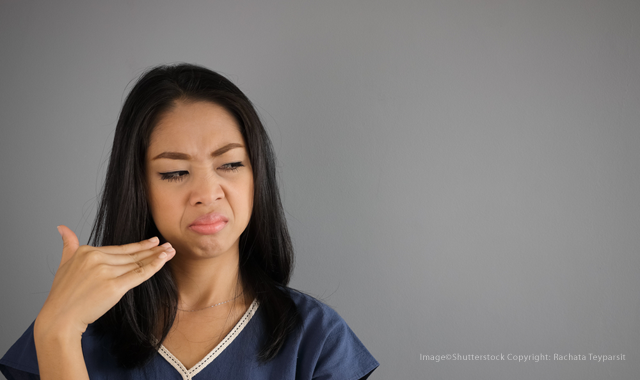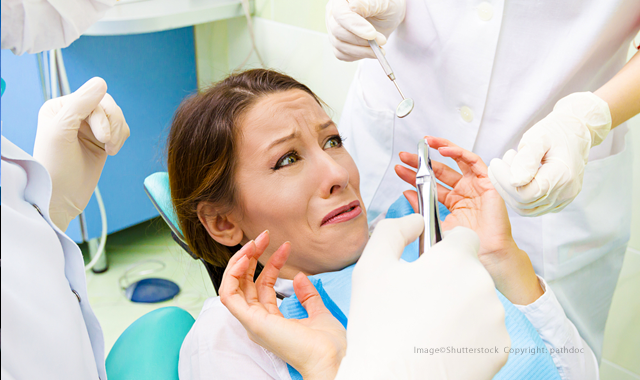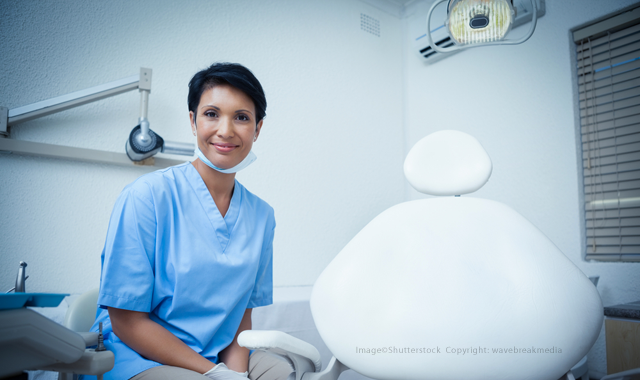- About Us
- Advertise
- Editorial
- Contact Us
- Terms and Conditions
- Privacy Policy
- Do Not Sell My Personal Information
© 2025 MJH Life Sciences™ and Dental Products Report. All rights reserved.
5 Reasons being a dental hygienist is harder than you might think
Dental hygienists are often discounted in their role as healthcare professions by the public. Nor is the public aware of the schooling it takes to become a dental hygienist. Even further, many don’t understand how physically demanding dentistry is, despite the fact it looks like we are just sitting there.
“Oh, you’re a dental hygienist?! Don’t you just scrape on teeth? What an easy job you have!” Not so fast there!
Dental hygienists are often discounted in their role as healthcare professions by the public. Nor is the public aware of the schooling it takes to become a dental hygienist. Even further, many don’t understand how physically demanding dentistry is, despite the fact it looks like we are just sitting there.
Is the public entirely in the wrong for not knowing? To be fair, many of us don’t know what education it takes to be an electrician and what it takes to wire a house to code so it doesn’t burn down. So we shouldn’t expect everyone know all about the dental hygiene profession either. However, I’d like to help with that. Here are five reasons being a dental hygienist is harder than you might think.

1. Dental hygienists are college educated
There are countless articles stating dental hygienists only have two years of college education because a number of dental hygiene programs give an associate degree. What is left out of these articles is the fact there are college prerequisite classes to be taken before one enters a two-to-three-year dental hygiene program. This adds at least a year (and for many, even longer) of additional college education. Depending on the particular program some of these prerequisites include pharmacology, anatomy, and physiology, biology, microbiology, chemistry, medical terminology, along with English/writing, math, public speaking, with some humanities, philosophy, and psychology sprinkled in-pretty much the same prerequisites of other healthcare professionals, like nurses. Some enter an associate degree dental hygiene program with an associate’s degree already because of all the prerequisites. Many hygiene programs are becoming bachelor-degree programs because the education is reflective of one.
The dental hygiene program is no walk in the park either. Am I saying it's astrophysics? No, but many tears are shed due to the rigor. Then comes board exams. There’s the eight-hour written board, the clinical board, the clinical anesthesia board, and the written anesthesia board. Further, a dental hygienist must take continuing education credits to keep their license valid every licensure period as well. So dental hygienists’ education never stops; as new research and protocols emerge, we have a duty to stay current to serve our patients to the best of our ability.
The point is dental hygienists learn far more than just “scraping on teeth.” Heck, we can even spot certain diseases before your body ever shows them. Some hygienists even go on to get their master’s or PhD. Dental hygienists use very sharp instruments and stir up bacteria in your mouth; you better bet we are college-educated.

2. Dental hygiene is physically hard
Dental hygienists aren’t running marathons every day, but our neck, back, arms, and hands are.
We use very precise movement-so it doesn’t really appear to be physically demanding-but this repetitive motion certainly takes its toll. Not to mention that constantly looking down to try to see in your mouth and getting in position to get a precise instrument blade angle to thoroughly clean your teeth is back-breaking. Because of this many hygienists must seek chiropractic, massage therapy, and sometimes physical therapy on a regular basis to function. Carpal tunnel and ruptured discs in the spine, among other injuries, take many dental hygienists’ clinical careers away from them.
This physical toll is why we lay our patients back the way we do. It’s all in an effort to not only injure ourselves but to be able to position you in the best way so we can do our jobs in the best way. Unless you have a medical condition that makes it unsafe for you to lay back and you sleep sitting upright, for the health of your dental hygienist and to receive the best treatment, please lay back. It’s only an hour, but for a dental hygienist, it takes a toll on our bodies for a lifetime. Help a hygienist out!

3. Dental hygienists see and smell very gross things
It should be no secret that dental hygienists see and smell very gross things. Yet we keep a smile on our face while doing it. Seeing a mouth that needs a good cleaning makes our hands twitch with excitement. Now, do we see things on the same level as a nurse, nurse’s aide, doctor, or the like? Probably not-or at least for many of us, not on a daily basis. We are, after all, only dealing with one body orifice. However, the smell of infection alone would knock a layperson to their knees, not to mention the rotting food hygienists dig out from between teeth and lodged under gums. With the amount of blood we see and work in every day, it’s surprising some patients don’t need blood transfusions when we are done treating them (this is being sarcastic of course, but you get the picture).
The point is, while a dental hygienist’s job may seem gross to many, it’s all to keep our patients healthy. Our goal is to prevent disease or stop disease if it’s already started. A healthy mouth is a healthy body as many bodily diseases have been linked to bacteria from the mouth and the chronic inflammation that ensues. Just some examples include heart disease, Alzheimer’s, certain cancers, low birth weight, and preterm babies, diabetes-and this list could go on. If that means we have to see and smell gross things, it’s totally worth it for the health of our patients.

4. Dental hygienists have a lot to do in a short amount of time
Dental hygienists are given a set amount of time to treat our patients thoroughly and to the best of our ability. For some, it can be very stressful to stay on time day in and day out. A simple list of a basic things hygienists must do during an appointment includes: go over a patient’s health history; take vitals; discuss concerns about your teeth; take several different measurements to monitor the health of your gums (gum recession, pocket depths, bleeding points, tooth mobility, etc.); take X-rays; screen for oral cancer and abnormalities; clean your teeth; polish your teeth; floss; educate on home care recommendations and the status of your gum health; help the doctor with the exam; explain and answer any questions regarding recommendations of treatment; write chart notes; and disinfect the room for the next patient, all while staying in a certain time frame.
While we do our absolute best to stay on time, sometimes unforeseen circumstances, completely out of our control, put us behind schedule. Sometimes the doctor has an emergency patient, or is not at a stopping place in treatment of their patient and isn’t able to do an exam in a timely manner. When a patient shows up late we cannot cut anything out of the appointment to get their treatment done on time, as it all needs to be completed to provide thorough and comprehensive treatment.
I mean, what if we left out screening for oral cancer because a patient was late and it wasn’t caught until six months later or whenever the next appointment was made? When it comes to cancer that could be the difference in cancer survival rate. That ten minutes someone shows up late matters! It also puts the rest of our patients behind because time is hard to make up. Sometimes patients need more treatment than anticipated. Maybe they have been slacking on their oral home care and have more deposits and stain to remove than normal or came in with a toothache that requires extra X-rays and tests by the doctor to determine the problem. Maybe the doctor a hygienist works for doesn’t allow enough time for patient treatment in the first place.
Staying on time isn’t always easy and running late isn’t always our fault. Working against the clock, day in and day out isn’t as easy as it seems as not everything is in our control.

5. Dental hygienists work with the public doing something that much of the public doesn’t like
Dental hygienists work with the public. Anyone who works with the public knows how hard that can be. Ask any server at a restaurant or any customer service associate at a retail store. To add to the struggle, dental hygienists work with the public who don’t always want to be at the dental office. Hygienists get it; patients have valid fears, former bad experiences, and patients can feel uncomfortable and vulnerable having someone work in their mouth. However, some patients take this fear and vulnerability out on the dental hygienist personally. For some, their fear makes them act almost cruel.
Hygienists know what they signed up for, but to be honest, they didn’t give you the infection in your mouth and are actually trying to help you. They didn’t pursue dental hygiene to “torture” you. Hygienists realize you may not want to be at the dental office and try to make your appointment as pleasurable and comfortable as possible. Dealing with unruly patients is part of the job, we get that, but we are people too, and being treated with less than decent respect is never easy.

Conclusion
So why do we subject ourselves to this as dental hygienists? We are tooth nerds who love preventive healthcare and have a passion for improving the health of our patients. Maybe some of us would not describe themselves as a tooth nerd, but hyGENIOUS about covers it. Dental hygienists work hard to become dental hygienists and continue working hard to care for their patients every day. We know that not everyone loves going to the dentist, but we love taking care of you. We wouldn’t do it if we didn’t.
This is an official request to treat your dental hygienist as the healthcare provider that they are. Dental hygiene isn’t just a job for us; it’s who we are!
Related Content:



